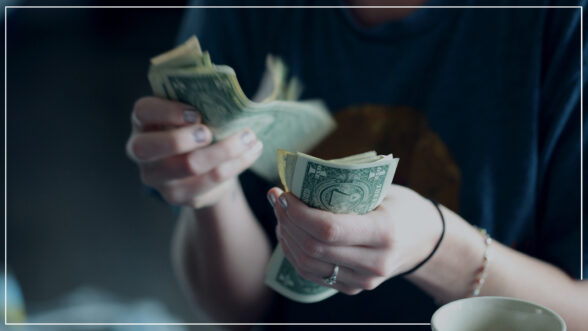RECESSION-CORE INFLUENCING
Deinfluencers enter the chat
As a stark contrast to generational defining trends like #TikTokMadeMeBuyIt, - beauty and lifestyle influencers have recently been dabbling in deinfluencing, urging followers to think twice about impulse-purchasing the latest must-have products and instead connect the dots between unethical labor practices, excess waste and focus on affordable options (or dupes), which perhaps couldn't come at a better time considering 62% of Gen Z is worried about a recession in the next 6 months. With Cassandra’s research uncovering that 60% of U.S. Trendsetters follow influencers to learn about things and explore, it’s no surprise then that the sudden trend - which sprang from a place of authenticity and as a way for influencers to show how down-to-earth they are, has seen such a spike in interest. However, as the trend lingers, the more it becomes something of a paradox. Ahead we cast a lens on three elements focused on this conflicting new trend.

THE DEINFLUENCER
Alyssa Kromelis: “Here are all the things I will deinfluence you from buying as somebody that spends thousands of dollars on health, beauty, hair products, but loves to save a buck,” TikToker Alyssa Kromelis says in her deinfluencing video, which has racked up over 5.4 million views, suggesting dupes for more expensive products she says are not worth the hype. Kromelis considers videos like hers “recession-core influencing.” When the price of eggs has increased by nearly 60% over the last 12 months, most of your followers aren’t looking to buy $30 lip gloss; the content you’re creating has to fit with the times.”, she said.

THE EDUCATORS
For some content creators, this moment is more about education than about what not to buy or what dupes to swap in. Paige Pritchard - a spending coach who shares financial advice, said she chose her career path after blowing her entire $60,000 salary on clothing, beauty, and hair products in the first year after graduating college. Now she’s focused on teaching others how to not overspend on those impulse buys. Others, such as Monica Ravichandran, a product manager and beauty content creator, want her followers to give some thought to who they let influence them on TikTok and question whether a cult-beloved product is worth their hard-earned coin.

THE CYNICS
To stay on top of their game, creators perform authenticity and swear honesty in their endorsements of products. Still, with the tide against these creators turning, they’ve had to fight for their follower's trust to differentiate themselves. However, those with a more cynical stance suggest that what started as an honest, user-led intervention into our collective consumer behavior has now been co-opted by influencers to defame certain products and then turn around and offer up alternatives — essentially influencing their followers to buy more items, not less. And, there might be money to be made in that as well - by listing these dupes on their storefront.